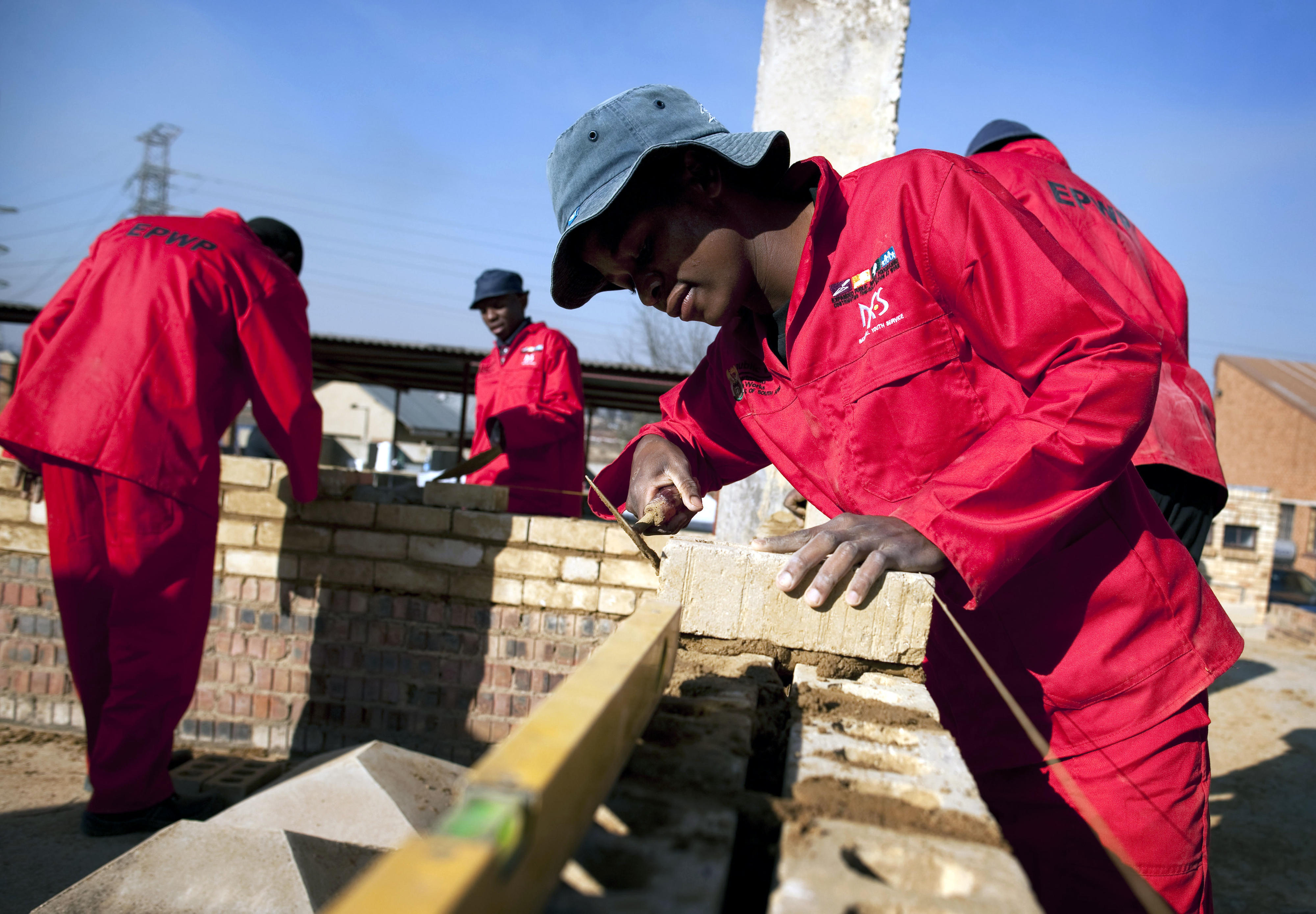Trainees at a technical training centre in Soweto
Copyright© Thomas Köhler/photothek.net
Core area “Sustainable economic development, training and employment” Creating employment opportunities
At present, South Africa's vocational training system still has significant shortcomings. Many teachers have received poor or no training, and curricula focus too much on theory and are not aligned with labour market needs. There is no systematic cooperation between companies and public TVET colleges.
The BMZ is assisting its South African partners in linking vocational training more closely with the labour market and working with the private sector to establish dual training courses. The courses combine periods of practical training in companies with classroom training at a TVET college.
The focus is on occupations for which there is a significant shortage of skilled labour (such as electricians and plumbers) and on occupations that are related to environmental protection and climate action and offer good employment opportunities for the future. German support is provided for three-year training courses but also for short-term programmes that are intended to give participants quick access to the labour market. In parallel, in-service training is being provided both for the teachers of the participating TVET colleges and for trainers at companies.
Building “green technology” skills
The envisaged energy transition will lead to significantly higher demand for skilled staff in “green” industrial sectors. The BMZ is assisting the South African government in seizing the opportunities which structural change offers for the promotion of employment. Support is being provided for new demand-oriented training programmes that give young people the necessary technical and practical skills. This includes gender-sensitive support activities to help ensure that young women, in particular, will be able to generate their own incomes. Moreover, the development cooperation programme assists small and medium-sized enterprises in expanding their business operations and creating new jobs.
Employment opportunities arising from the digital transformation
One project under Technical Cooperation focuses on employment opportunities in the digital sector. The project involves cooperation with industry to identify career opportunities that match demand in the labour market. Based on that, vocational school students and jobless youth are offered appropriate careers advice, training, and opportunities to gain practical experience at a company. The project is putting a special focus on assisting young women in starting their own businesses in the digital sector.
As at: 27/11/2024
